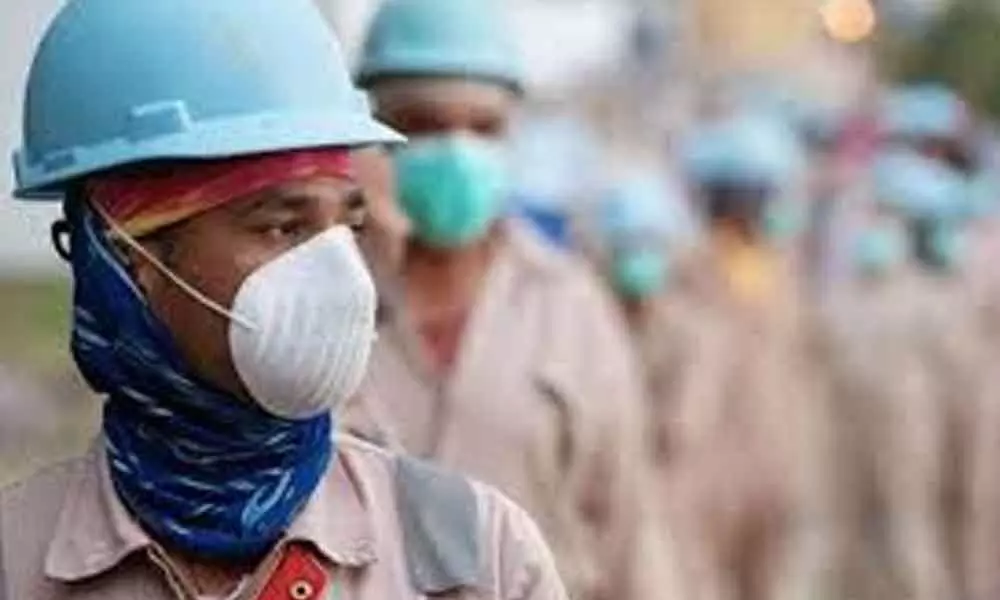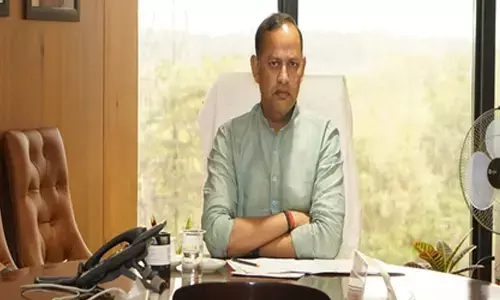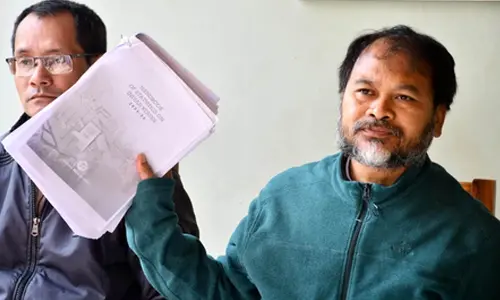Singapore companies applaud govt move

Singapore Companies in Singapore have applauded the government's move to reopen borders to India, Bangladesh and other South Asian countries but they are also seeking clarity on the measures that will allow manpower for the labour-intensive construction sector which has been badly hit by the COVID-19 pandemic.
Singapore Companies in Singapore have applauded the government's move to reopen borders to India, Bangladesh and other South Asian countries but they are also seeking clarity on the measures that will allow manpower for the labour-intensive construction sector which has been badly hit by the COVID-19 pandemic. Several companies, facing labour shortage, have expressed uncertainty about the rate of workers from South Asian countries allowed to enter Singapore from Wednesday, reported the Channel News Asia.
Singapore started allowing travellers from Bangladesh, India, Myanmar, Nepal, Pakistan and Sri Lanka to enter or transit through the country from 11.59 pm on Tuesday. Short-term visitors are not included. Straits Construction, which is building two executive condominiums and a public housing estate at Tengah Housing Board among other projects, welcomed the relaxed measures. Most of its workers are from South Asia.
"As you know, the industry is actually very short of workers currently. The numbers that are coming in are hardly enough to replace those going back," the Channel quoted executive director and chief operating officer Kenneth Loo as saying. "The issue going forward is what is the rate of workers coming in, and whether the gates will be open, though still in a controlled manner, which I presume it probably will be. How is that going to be regulated and what's the pace," he asked.
Travellers from these countries are subject to Category IV border restrictions which include a 10-day stay-home notice at dedicated facilities. Long-term pass holders and short-term visitors with travel history to Bangladesh, Nepal, Pakistan and Sri Lanka in the last 14 days were barred from entry or transit in Singapore since May 2. A similar ban had applied to India since April 24. The restrictions were implemented as the COVID-19 outbreak in India worsened and Singapore clocked more local cases. Manpower Minister Tan See Leng said in Parliament on May 11 that the number of work permit holders in construction, marine shipyard and process sectors fell by nearly 60,000, or 16 per cent, last year. The Ministry of Manpower (MOM) said in a statement to the media that same month that "over the last year, the outflow of migrant workers has exceeded the inflow, as many workers have ended their contracts and chosen to return home." But as a result of border restrictions to "mitigate importation risks", the ministry said it wasn't able to adequately replace those who left Singapore before the country completely stopped entry of all from South Asia on May 2.
A pilot programme was launched in July by some companies in construction, marine and process sectors to bring in migrant workers from India in a "calibrated manner". Companies that traditionally relied on migrant workers from India and Bangladesh also began looking further afield for labour but several of them told the Channel that the cost of hiring workers from countries like China was too high.
More details on the new border measures are yet to be given by authorities but it is "positive news" nonetheless, noted Louise Chua, executive director at Singapore Contractors Association. "The news doesn't give us a lot of information, so actually currently we are working with the agencies BCA (Building and Construction Authority) and MOM to understand what does it mean to bring in vaccinated workers from South Asian countries to Singapore, especially for the construction sector," she said.
Likewise, the easing of border measures is good news for Success Forever, a building maintenance company that counts several town councils and government agencies among its clients but director Jack Oei worries there may be a rush of workers coming in, leading to a "bottleneck" in the approval process. "Of course I feel good having this piece of news but the only thing is suddenly everybody wants (the workers from South Asia to come in). So most probably it will be a bottleneck as well," he told CNA.
"Everyone wanting to come at once is also not possible. I think the beginning will be a mad rush," Oei was quoted as saying. For companies that hire workers from South Asian countries, the relaxation of border controls means they can apply for tenders once they have a fixed date for workers to enter Singapore. "We need to know very clear when this relaxation of this new intake of workers is going to take place," said Goh Eng Lam, president of the Landscape Industry Association (Singapore).
"Once they are able to come into Singapore, I can plan my time and my deployment. For instance... if there is any tender or job opportunity and I know it's going to cross into early next year or December this year, and I know my worker may be here in October or November and may need to quarantine for three months, at least I know, I can plan," he said. "But today, I dare not take on some of these opportunities, because what if I'm being given them and I have no manpower to fulfil the contractual obligations," he asked.
Although companies in the labour-intensive construction sector now have "better foresight in our workload", authorities need to address specific arrangements for workers, added the association's treasurer Raymund Ooi. "We're a little bit happier that they're relaxing (the rules), but they're not clear on what is the relaxation. So probably we want a little bit more clarity," said Ooi, who runs landscape and construction company, Limelite Productions.














